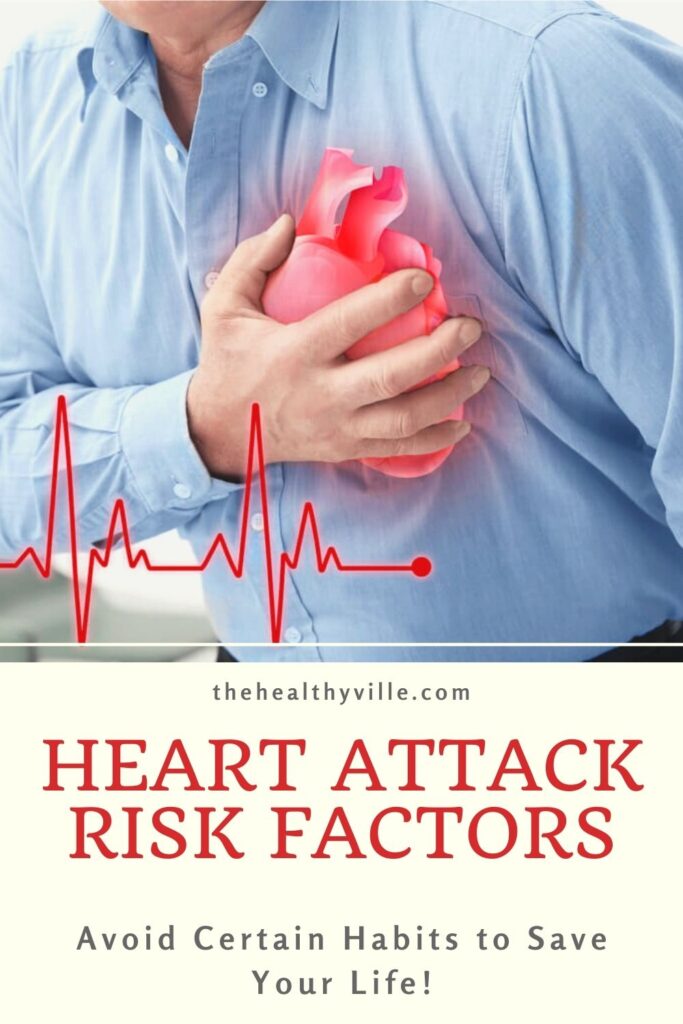Heart attack risk factors may seem irrelevant, but being careful and avoiding certain habits can save your life. Find out more about this!
Among the things we must know, not only for our health but also for that of others, is knowing how to recognize a heart attack. With a few keys we can prevent an unfavorable situation from getting complicated. You have to act quickly.
The origin of heart attacks is easy to explain: it occurs when a clot is able to block blood flow through the arteries. In this way, it is difficult for the blood to reach the heart, preventing its proper functioning and pumping to the rest of the body
Unfortunately, heart attacks have a considerable casualty rate. In Spain, heart attacks are the first cause of death.
In 2015, more than 420 thousand people died from heart attacks, which is 6% compared to the previous year.
How to recognize a heart attack?
Before they occur, heart attacks and strokes send signals to the body for a short time. Therefore, if we know how to recognize a heart attack, we can either help the person or request medical assistance. Knowing how to act in this time frame that the body gives us can be vital.
Recognizing a heart attack and helping the person in time can even guarantee their recovery.
Symptoms of heart attack
Pain in the back of the sternum, in the retrosternal area. The discomfort begins to manifest itself in one of the arms, mainly the left, extending up to the neck, for approximately 40 minutes.
Palpitations increase and shortness of breath worsens.
Nausea is also included in the symptoms. Attention, not every time the person feels nauseous should be directly related to a heart attack. These usually manifest after step one. The affected person may even vomit as a subsequent reaction.
The body can go from one extreme to another with its temperature. This varies from person to person. Some may go to the point of breaking out a cold sweat, while others feel like their body temperature rises suddenly.
Anxiety also says present. We know that this is a life-threatening case, but it is advisable to seek help quickly, as your own concern can threaten you.
5 heart attack risk factors
Certain habits you practice every day increase the risk of having a heart attack. Let’s discover the main 5 heart attack risk factors.
-
Smoking
Tobacco use increases the chances of having a heart attack. This is one of the main elements included in the list of deaths from cardiovascular diseases.
When a person smokes, their breathing capacity decreases considerably and, in the event of a heart attack, it can cause serious and even fatal consequences.
-
Excess stress
Stress is a common evil. Today’s fast paces of work and life have led us to have little time to rest and take life in steps. Therefore, as a first step in dealing with stress, you must learn to separate your work life from your personal life.
Try slowing down to regain perspective, focus on problem solving, and don’t drown in them. On the other hand, breathing techniques, mindfulness and other tools can help you focus on the present, on the aspects that you can solve and not worry so much about the future and let yourself be carried away by uncertainty.
-
Fats
Eat a healthy diet. Remember that a large part of heart problems are caused by poor diet
Prevent bad cholesterol from increasing its levels and threaten your life. We do not ask that you eliminate certain foods, only that you eat a little of everything in moderation.
-
Alcohol
Alcoholic beverages are harmful when their consumption is high and habitual. In fact, they contribute to being overweight, making the heart more likely to be affected.
Do it in moderation, if you still want to consume alcohol. Don’t give your body reasons to have a hard time.
-
Lack of physical activity
Just as constant agitation and lack of rest affects, the other extreme doesn’t help either. Those sedentary people, who do little for blood circulation, can suffer from various bodily ailments as a result of their inactivity.
As you can see, to avoid a heart attack it is not necessary to resort to extraordinary measures, the key is to lead a healthy lifestyle.
In addition, it is advisable to avoid excesses of all kinds and above all, keep in mind that knowing how to manage our emotions can help us considerably.
Don’t forget to SHARE the heart attack risk factors with your friends and family on your social networks!

